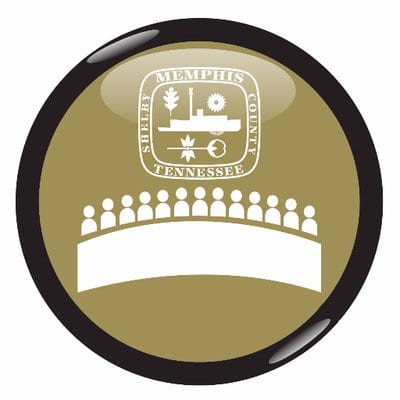Memphis City Council members Tuesday (Nov. 8) delayed a third and final vote for a pair of election-related ordinances, regarding partisan city elections and runoffs in citywide elections.
“What I am asking is for us to hold it in committee, until the next meeting. The purpose of that is we will have the results of the current (city) runoff elections (Nov. 16),” council Chairman Martavius Jones explained to members of the council’s Personnel and Government Affairs committee meeting, opting to gauge voter turnout before settling on a path forward.
Jones continued, “My concern with a runoff provision is we’ll end up with less voter participation than we would in a general (election.)”
There are no runoffs for citywide races. To win a City Council district race outright, the winner must receive 50 percent of the votes cast, plus one, or the top two voters getters must face each other in a runoff election.
Early voting ends Saturday (Nov. 11) for runoffs in council Districts 2, 3 and 7.
Jones favors a return to partisan city elections, although he isn’t opposed to runoffs. Nevertheless, he used runoff results from 2015 and 2019 to illustrate his preference.
“If we think that 24,000 voting for the mayor was low, we would have even lower numbers than that if we look at what the past results have been when we’ve had runoffs,” said Jones.
Jones was referring to the Oct. 5 city elections, with said 17 candidates vying to replace Mayor Jim Strickland, who is term limited. Paul Young, CEO of the Downtown Memphis Commission, won the mayor’s seat, receiving 24,420 votes.
Jones’ motion to delay the vote was met without objection. They will be taken up again on Nov. 21.
Both ordinances are a reaction to the Oct. 5 mayoral election. Young received 24,240 (27.44 percent) of the 88,337 votes cast in the mayor’s race, according to certified Shelby County Election Commission totals.
With a victory by plurality, the race was criticized by some council members for lacking a mandate.
In the past, council Vice Chair JB Smiley Jr. has said that only one of the provisions, the majority proposal, will appear on the 2024 ballot.
Another option discussed was a return to rank choice voting, which cancels the need for runoffs. Voters have the option to rank candidates in order of preference. Ballots that don’t help the voter’s top choices win count for their next choice.
The suggestion was made by councilmember Chase Carlisle in an earlier discussion on legislative priorities and picked up by a colleague.
Councilmember Jeff Warren said, “Both of these resolutions that we have here are inappropriate in answer to what our problem is. I think the ranked choice voting is probably the correct answer.”
Memphis voters approved rank-choice method in 2008. However, a 2022 Tennessee state law bans its use. Warren also wants the city to lobby the state to repeal the law.
Jones countered, saying that rank-choice voting didn’t increase participation, although it may prevent a runoff.



